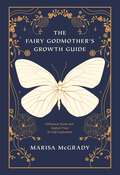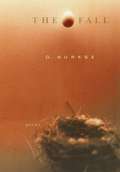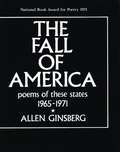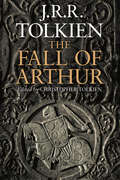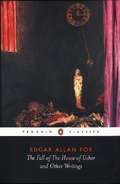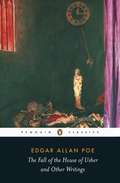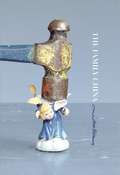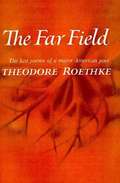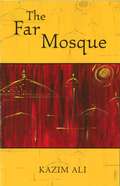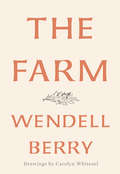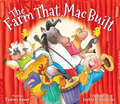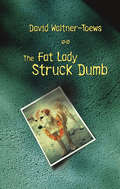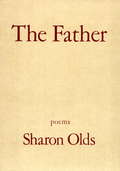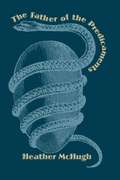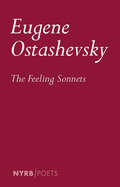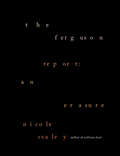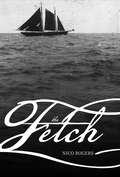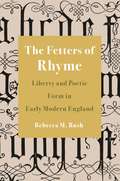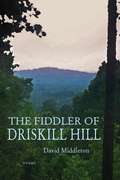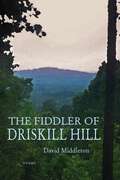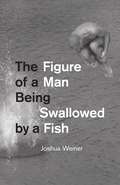- Table View
- List View
The Fairy Godmother's Growth Guide: Whimsical Poems and Radical Prose for Self-Exploration
by McGrady McGradySocial media sensation Marisa McGrady is the Fairy Godmother with a self-help guide that isn't one-size-fits-all. . .Modern media makes self-love seem simple. Buy a bath bomb, apply a face mask, and voila! You&’ve got self-love, commodified and canned for your convenience. But self-love cannot be bought. There is no &“one-size-fits-all&” approach to self-care. What happens once our bubble baths drain and feelings of self-loathing, doubt, or despair creep back in? How do our bodies, resource availability (including free time), and physical and emotional needs impact our ability to care for ourselves? Are our bodies &“bad&” just because certain industries, organizations, or people deem them so? Social media sensation Marisa McGrady, also known as @ris.writes or the Fairy Godmother online, explores these questions and more in her debut self-help book, The Fairy Godmother&’s Growth Guide: Whimsical Poems and Radical Prose for Self-Exploration. The bite-sized poems in Part I propose new perspectives about our bodies that inspire us to see ourselves in different lights. The prose in Part II explains accommodating, sustainable approaches to self-care while addressing the harms of industrialized self-love and exploring the internal concepts and external factors that impact self-worth. The Fairy Godmother&’s Growth Guide will redefine your relationship with yourself and help you make your life more magical.
The Fall
by D. NurkseIn this elegant collection, D. Nurkse elegizes a lost father, a foreshortened childhood, and a young marriage. From the drenched lawns of suburbia to the streets of Brooklyn, he delivers up the small but crucial epiphanies that propel an American coming-of-age and chronicles the development of a tender yet exacting consciousness. As the diversions of childhood prefigure the heartbreak of adulthood, Nurkse captures the exquisite sadness of each small “fall” that carries us further from our early innocence. In the book’s final section, the poet turns to face mortality with a series of stirring poems about illness in midlife. Throughout, Nurkse celebrates the sheer strangeness of our perceptions in a language that is both astute and surpassingly lyrical. From the Hardcover edition.
The Fall of America Journals, 1965–1971
by Allen GinsbergAn autobiographical journey through America in the turbulent 1960s—the essential backstory to Ginsberg&’s National Book Award–winning volume of poetry Published in 1974, The Fall of America was Allen Ginsberg&’s magnum opus, a poetic account of his experiences in a nation in turmoil. What his National Book Award–winning volume documented he had also recorded, playing a reel-to-reel tape machine given to him by Bob Dylan as he traveled the nation&’s byways and visited its cities, finding himself again and again in the midst of history in the making—or unmaking. Through a wealth of autopoesy (transcriptions of these recorded poems) published here for the first time in the poet&’s journals of this period, Ginsberg can be overheard collecting the observations, events, reflections and conversations that would become his most extraordinary work as he witnessed America at a time of historic upheaval and gave voice to the troubled soul at its crossroads.The Fall of America Journals, 1965–1971 contains some of Ginsberg&’s finest spontaneous writing, accomplished as he pondered the best and worst his country had to offer. He speaks of his anger over the war in Vietnam, the continuing oppression of dissidents, intractable struggles, and experiments with drugs and sexuality. He mourns the deaths of his friends Neal Cassady and Jack Kerouac, parses the intricacies of the presidential politics of 1968, and grapples with personal and professional challenges in his daily life. An essential backstory to his monumental work, the journals from these years also reveal drafts of some of his most highly regarded poems, including &“Wichita Vortex Sutra,&” &“Wales Visitation,&” &“On Neal&’s Ashes,&” and &“Memory Gardens,&” as well as poetry published here for the first time and his notes on many of his vivid and detailed dreams. Transcribed, edited, and annotated by Michael Schumacher, a writer closely associated with Ginsberg&’s life and work, these journals are nothing less than a first draft of the poet&’s journey to the heart of twentieth-century America.
The Fall of America: Poems of These States 1965-1971
by Allen GinsbergBeginning with "long poem of these States," The Fall of America continues Planet News chronicle tape-recorded scribed by hand or sung condensed, the flux of car bus airplane dream consciousness Person during Automated Electronic War years, newspaper headline radio brain auto poesy & silent desk musings, headline flashing on road through these states of consciousness ...<P><P> Winner of the National Book Award
The Fall of Arthur
by Christopher Tolkien J.R.R. TolkienThe Fall of Arthur, the only venture by J.R.R. Tolkien into the legends of Arthur, king of Britain, may well be regarded as his finest and most skillful achievement in the use of Old English alliterative meter, in which he brought to his transforming perceptions of the old narratives a pervasive sense of the grave and fateful nature of all that is told: of Arthur's expedition overseas into distant heathen lands, of Guinevere's flight from Camelot, of the great sea battle on Arthur's return to Britain, in the portrait of the traitor Mordred, in the tormented doubts of Lancelot in his French castle. Unhappily, The Fall of Arthur was one of several long narrative poems that Tolkien abandoned. He evidently began it in the 1930s, and it was sufficiently advanced for him to send it to a very perceptive friend who read it with great enthusiasm at the end of 1934 and urgently pressed him, "You simply must finish it!" But in vain: he abandoned it at some unknown date, though there is evidence that it may have been in 1937, the year of publication of The Hobbit and the first stirrings of The Lord of the Rings. Years later, in a letter of 1955, he said that he "hoped to finish a long poem on The Fall of Arthur," but that day never came. Associated with the text of the poem, however, are many manuscript pages: a great quantity of drafting and experimentation in verse, in which the strange evolution of the poem's structure is revealed, together with narrative synopses and significant tantalizing notes. In these notes can be discerned clear if mysterious associations of the Arthurian conclusion with The Silmarillion, and the bitter ending of the love of Lancelot and Guinevere, which was never written.
The Fall of the House of Usher and Other Writings: Poems, Tales, Essays and Reviews
by Edgar Allan PoeThis selection of Poe's critical writings, short fiction and poetry demonstrates an intense interest in aesthetic issues and the astonishing power and imagination with which he probed the darkest corners of the human mind. "The Fall of the House of Usher" describes the final hours of a family tormented by tragedy and the legacy of the past. In "The Tell Tale Heart", a murderer's insane delusions threaten to betray him, while stories such as "The Pit and the Pendulum" and "The Cask of Amontillado" explore extreme states of decadence, fear and hate. Notes and introduction are supplied by David Galloway.
The Fall of the House of Usher and Other Writings: Poems, Tales, Essays, And Reviews
by Edgar Allan PoeThe Fall of the House of Usher and Other Writings is a collection that displays the full force of Edgar Allen Poe's mastery of both Gothic horror and the short story form. This Penguin Classics edition is edited with an introduction and notes by David Galloway.This selection of Poe's critical writings, short fiction and poetry demonstrates his intense interest in aesthetic issues, and the astonishing power and imagination with which he probed the darkest corners of the human mind. 'The Fall of the House of Usher' is a slow-burning Gothic horror, describing the final hours of a family tormented by tragedy and the legacy of the past. In 'The Tell-Tale Heart', a murderer's insane delusions threaten to betray him, while stories such as 'The Pit and the Pendulum', 'The Raven' and 'The Cask of Amontillado' explore extreme states of decadence, fear and hate. In his introduction David Galloway re-examines the myths surrounding Poe's life and reputation. This edition includes a new chronology and suggestions for further reading.Although dissipated in his youth and plagued by mental instability towards the end of his life, Boston-born Edgar Allan Poe (1809-49) had a variety of occupations, including service in the US army and magazine editor, as well as his remarkable literary output.If you enjoyed The Fall of the House of Usher, you might like Horace Walpole's The Castle of Otranto, also available in Penguin Classics.'The most original genius that America has produced'Alfred, Lord Tennyson'Poe has entered our popular consciousness as no other American writer'The New York Times Book Review
The Family China
by Ann ShinIn The Family China, her second book of poems, Ann Shin examines the decentering experiences of migration, loss and death, and the impulse to build anew. In five suites threaded through with footnote-like fragments that haunt and ambush the text like memories, the book accrues associations, building and transforming images from poem to poem, creating a layered and cohesive collection that asks daring questions about how we define ourselves. These poems grapple rawly and musically with the profound messiness of human relations; their candour consoles and instructs. The quandaries in The Family China are deeply recognizable. Strung up between fragility and resilience, between naïve hope and domestic disillusionment, between an untenable nostalgia for the pastoral and a deep unease with the global, the voice of these poems is nevertheless determined to find some scrap of a song we can sing in common.
The Family Treasury of Children's Stories (Medieval Mysteries #1)
by Pauline Rush EvansThe first of a 2-volume feast of children's stories, nursery rhymes and poems. A big, generous collection of the best reading for all ages, full of whole stories (not chopped-up versions).
The Family Treasury of Children's Stories (Medieval Mysteries #2)
by Pauline Rush EvansThis two-volume treasury will indeed be a treasure to parents who want to bring back to life many children's stories and poems which many thought dead to the modern generation.
The Far Field: Last Poems
by Theodore RoethkeWith Roethke's sudden, tragic death in 1963, a great poetic career was brought to an untimely end. "The Far Field" presents the most rewarding of his many volumes of poetry, both in brilliance of style and inner meaning. All of the poems have appeared previously in periodicals such as "The Atlantic Monthly, Harper's, Ladies' Home Journal, The New Yorker", and "The Partisan Review".<P><P> Winner of the National Book Award
The Far Mosque
by Kazim AliThese gently fragmented narrative lyrics pursue enlightenment in long, elegant yet plain-spoken, dark yet ecstatic lines. Ali travels by water and by night, seeking the Far Mosque and its overarching paradox: that when God and Self are one, an ascent into Heaven is a voyage within.
The Farm
by Wendell BerryA collector's edition, and the perfect gift for the stalwart Wendell Berry fan First printed in 1995 by Gray Zeitz of the beloved Larkspur Press in Monterey, Kentucky, this gift edition is a beautiful reproduction of Wendell Berry’s book–length poem, illustrated with the original drawings by Carolyn Whitesel.
The Farm That Mac Built
by Tammi SauerThe scarecrow from Old Mac Donald&’s farm emcees a barnyard theater production that collapses into hilarious chaos in this rollicking rendition of &“The House That Jack Built.&” It&’s showtime on Old Mac Donald&’s Farm! The barnyard animals are putting on a play—a farm version of "The House That Jack Built"— but other animals keep taking the stage and interrupting the production. First some rambunctious monkeys, then breakdancing kangaroos . . . there&’s even a pair of singing elephants. Everyone knows that monkeys, kangaroos, and elephants do NOT belong on a farm . . . so what to do? Bursting with sound effects and rollicking repetition that will have kids clamoring for repeat readings, this hilarious mashup of two favorite nursery rhymes shows that perseverance and teamwork pay off, and that sometimes you just have to roll with the unexpected and try to have fun with it.
The Fat Lady Struck Dumb
by David Waltner-ToewsOn the day that David Waltner-Toews' young daughter Rebecca gave "Mr. Fluff, that venerable stuffed dog" to her older brother, the poet learned a lesson in community building -- to get what you really want you must give it away and then share it back. There is nothing didactic about The Fat Lady Struck Dumb, though the book is packed with wisdom compacted of love for the planet and detailed knowledge of its ecosystems, including the stress they currently suffer. These are passionate poems of a committed citizen ardently testifying for the globe, his home and ours. One of his recurrent techniques is the catalogue in which layers of global being are rounded. Waltner-Toews is a scientist by education and occupation. He understands better than most our tenuous place in the web of being. His poems are organisms rooted in that knowledge, gifts of language bound to call out of his readers a passionate return in kind.
The Father
by Sharon OldsThe Fatheris often regarded as Sharon Olds' most important and powerful single book. In its poems, Olds narrows her focus to a sequence of startling and provocative poems about a daughter's final days with her dying father. It is an elegant, passionate examination of love and loss, a bittersweet, transcendent elegy.
The Father Of The Predicaments
by Heather McHughHeather McHugh takes her cue from Aristotle, who wrote that "the father of the predicaments is being." For McHugh, being is intimately, though not ultimately, bound to language, and these poems cut to the quick, delivering their revelations with awesome precision.
The Feeling Sonnets
by Eugene OstashevskySlyly funny, inventive, and virtuosic, this new collection from a Russian-American master challenges poetic convention and explores themes of alienhood, translation, and human emotion.In Eugene Ostashevsky&’s The Feeling Sonnets—his fourth collection of poems— words, idioms, sentences, and poetic conventions are dislodged and defamiliarized in order to convey the experience of living in a land, and a language, apart. The book consists of four cycles of fourteen unrhymed, unmetered sonnets. The first cycle asks about the relationship between interpretation and emotion, whether &“we feel the feelings that we call ours.&” The second cycle, mainly composed of &“daughter sonnets,&” describes bringing up children in a foreign country and a foreign language. The third cycle, called &“Die Schreibblockade,&” German for writer&’s block, talks about foreign-language processing of inherited historical trauma, in this case the siege of Leningrad from 1941 to 1944. The fourth cycle is about translation. The sonnets are followed by a short libretto, commissioned by the Italian composer Lucia Ronchetti, about Ravel&’s interaction with Paul Wittgenstein over the Piano Concerto for the Left Hand.
The Ferguson Report: An Erasure
by Nicole SealeyA meditation on our times, cast through a reconsideration of the Justice Department's investigation of the Ferguson Police DepartmentIn August 2014, Michael Brown—a young, unarmed Black man—was shot to death by a police officer in Ferguson, Missouri. What followed was a period of protests and turmoil, culminating in an extensive report that was filed by the Department of Justice detailing biased policing and court practices in the city. It is a document that exposes the racist policies and procedures that have become commonplace—from disproportionate arrest rates, to flagrant violence directed at the Black community. It is a report that remains as disheartening as it is damning.Now, award-winning poet Nicole Sealey revisits the investigation in a book that redacts the report, an act of erasure that reimagines the original text as it strips it away. While the full document is visible in the background—weighing heavily on the language Sealey has preserved—it gives shape and disturbing context to what remains.Illuminating what it means to live in this frightening age, and what it means to bear witness, The Ferguson Report: An Erasure is an engrossing meditation on one of the most important texts of our time.
The Fetch
by Nico RogersShortlisted for the 2011 Northern "LIT" Award (Northern Libraries recognizing Northern Authors) A book of voices arising out of the lives of people who populated outport Newfoundland. Drawing on family recollections, interviews with elders and extensive research in archives and regional museums, The Fetch, Nico Rogers' first book, is a brilliant hybrid -- neither a novel nor a collection of short stories. This compelling volume of tales and prose poems contains a broad range of characters. There is the slow-witted girl who has lost her mother and now has only the cow named Fatty for a friend; the hard-bitten captain of a schooner in recoil from the ways of his alcoholic father; the child born premature, swaddled in olive oil-soaked linen, placed in a pan and incubated in an oven. And so on, twenty-eight vignettes in all, all tightly written and highly evocative of outport Newfoundland before Confederation. Funny, tragic, and just.
The Fetters of Rhyme: Liberty and Poetic Form in Early Modern England
by Rebecca M. RushHow rhyme became entangled with debates about the nature of liberty in sixteenth- and seventeenth-century English poetryIn his 1668 preface to Paradise Lost, John Milton rejected the use of rhyme, portraying himself as a revolutionary freeing English verse from “the troublesome and modern bondage of Riming.” Despite his claim to be a pioneer, Milton was not initiating a new line of thought—English poets had been debating about rhyme and its connections to liberty, freedom, and constraint since Queen Elizabeth’s reign. The Fetters of Rhyme traces this dynamic history of rhyme from the 1590s through the 1670s. Rebecca Rush uncovers the surprising associations early modern readers attached to rhyming forms like couplets and sonnets, and she shows how reading poetic form from a historical perspective yields fresh insights into verse’s complexities.Rush explores how early modern poets imagined rhyme as a band or fetter, comparing it to the bonds linking individuals to political, social, and religious communities. She considers how Edmund Spenser’s sonnet rhymes stood as emblems of voluntary confinement, how John Donne’s revival of the Chaucerian couplet signaled sexual and political radicalism, and how Ben Jonson’s verse charted a middle way between licentious Elizabethan couplet poets and slavish sonneteers. Rush then looks at why the royalist poets embraced the prerational charms of rhyme, and how Milton spent his career reckoning with rhyme’s allures.Examining a poetic feature that sits between sound and sense, liberty and measure, The Fetters of Rhyme elucidates early modern efforts to negotiate these forces in verse making and reading.
The Fiddler Of Driskill Hill: Poems
by David MiddletonDavid Middleton's The Fiddler of Driskill Hill celebrates a particular place and the universal human experience. While evoking distinctive landscapes, both north and south, these poems address the great philosophical and theological questions of the ages. A mysterious fiddler climbs Driskill Hill -- the highest point of elevation in Louisiana -- under the cover of darkness to practice his craft.
The Fiddler of Driskill Hill: Poems
by David MiddletonDeeply rooted in personal and regional history, David Middleton's The Fiddler of Driskill Hill celebrates a particular place and the universal human experience. While evoking distinctive Louisiana landscapes, both north and south, these poems address the great philosophical and theological questions of the ages. In the title poem, a mysterious fiddler climbs Driskill Hill -- the highest point of elevation in Louisiana -- under the cover of darkness to practice his craft: "I sing what is and ought to be / And will until I die: // For that's what bow and strings are for, / To raise things up in song / Between The Fall and Paradise / And urge the world along."Other poems contemplate loneliness and loss -- a father mourning the death of his ten-year-old daughter, a soldier's recollections of war, and a woman who, in bidding farewell to the only home she and her husband ever owned, says that she "Must walk one final time these rooms I share / With ghosts that speak and breathe in memory's breathless air." This collection reflects on the agrarian way of life, southern historical events, family, racial reconciliation, the relation between language and things, becoming and being a poet, and the experience of tragedy, death, and love.
The Figure of a Man Being Swallowed by a Fish
by Joshua WeinerAt the heart of Joshua WeinerOCOs new book is an extended poem with a bold political dimension and great intellectual ambition. It fuses the poetOCOs point of view with Walt WhitmanOCOs to narrate a decentered time-traveling collage about Rock Creek, a tributary of the Potomac that runs through Washington, DC. For Weiner, Rock Creek is the location of myriad kinds of movement, streaming, and joining: personal enterprise and financial capital; national politics, murder, sex, and homelessness; the Civil War and collective history; music, spiritual awakening, personal memory, and pastoral vision. The questions that arise from the opening foundational poem inform the others in the collection, which range widely from the dramatic arrival of an uncanny charismatic totem that titles the volume to intimate reflections on family, illness, and dream visions. The virtues of WeinerOCOs earlier booksOCodiscursive intelligence, formal control, an eccentric and intriguing ear, and a wide-ranging curiosity matched to variety of feelingOCoare all present here. But in "The Figure of a Man Being Swallowed by a Fish," Weiner has discovered a new poetic idiom, one that is stripped down, rhythmically jagged, and comprehensively philosophical about human limits.
